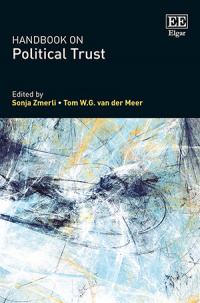
How to cite this work
Matias Bargsted, Nicolas Somma, Juan-Carlos Castillo (2017). Political Trust in Latin America. In Sonja Zmerli & Tom W. G. {van der Meer}: Handbook on Political Trust 395–417 . Cheltenham, UK ; Northampton, MA: Edward Elgar Publishing. ISBN: 978-1-78254-510-1